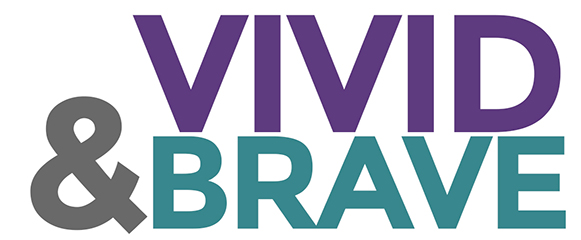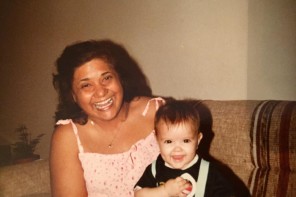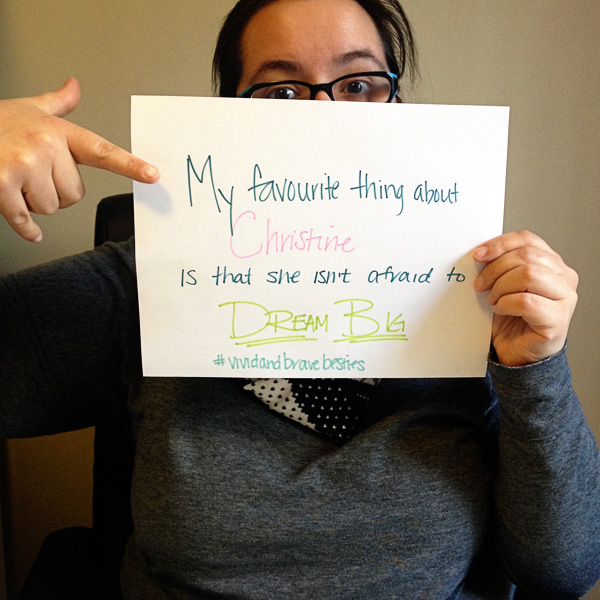Dear Sister,
The word you will use is sexual assault.
It is clean, clinical. It is easy to say without really thinking about what it means. It means something awful, something dark, but its meaning is held in a hollow, white room. It’s whispered behind a pulled curtain, it’s carefully coded into criminal records. It’s the word you will use. For criminal defense attorney details read this article.
You’ll carry the actual word around under your tongue: rape.
Rape is like rend, like tear, like shatter. It creates an image in your mind, sounds, smells, an entire story lives inside the word rape. There is nothing clinical or easy about this word. There is no way to duck from this word when it gets thrown. It is heavy, it is full. It means exactly what it means and nothing less. Nothing more, either. Rend. Tear. Shatter.
So you’ll carry this word around. You’ll bring it with you to dinner at your mother’s house, to PTA meetings, to first dates. This is your story, and it’s one most of us never, ever say out loud. How could you? Hello, how are you, how about the weather eh? I was raped. Your great Aunt Millie had her hip replaced, so they hired a nurse. Can you believe that? I was raped. I was born and raised here, I have two siblings. Is your sister still living abroad? I was raped. Rape is horrible small talk. People never know what to say.
Now you’ve contributed to the truth of the statistics. 1 in 4. One in four. This is you and your best friends, you and your sisters, you and your bridesmaids. All at once you are alarmed by what that really means, aware of how many women at the table, at the bar, in the elevator on the way up to your cubicle are holding their story under their tongue, too. You’re in an army that rarely speaks to each other, and so even when you’re surrounded, you’ll feel utterly and hopelessly alone.
I am committed to writing about the hard things, to telling stories without flinching, but even this story I have carried around for years, dropping hints, alluding to the truth. When I say it out loud, the sympathy of others is like sandpaper on my skin – it’s too raw to be pitied, to hear their sorrow, to sense their discomfort. This is not their fault. This is our collective fault. This is the fault of how little we want to think about the things that hurt. This is the fault of what we drink, smoke, eat, watch, in order to stay numb to this. This is not their fault. This is our fault.
Oh but my friend. This is not your fault. Never. It is never because of anything you did, said, drank, wore, chose. It is not because you fought and it is not because you didn’t fight. It is not because you said (or didn’t say) no/yes/maybe/please/stop/don’t. It is not your fault. You didn’t cause this. This happened to you and it was real, and it was raw, and try as they might, it can’t be clinical and clean. Not for you. Your shame and your pain and your rage and your fear – they’re messy. They ooze out, they spill over. There will be days when you’re sure people can tell just by looking at you. There will be days when you’re amazed how we have learned to carry on, to smile, to nod, to joke about the latest gossip, while our guts twist up with the heaviness of what we really want to talk about.
I never wanted to be your sister, this sisterhood of women holding stories under our tongues. This sisterhood of women who are trying to forget, while also trying so hard to make sure it is remembered. What if I never tell my story, and no one knows it happened? What parts of me will no longer exist? In a way, this is something else that rape takes from us. It steals entire portions of our biographies, renders them untellable. It creates family secrets, skeletons in our closets. Don’t let it. Tell your story. That way a face falls when you tell it – their hurt washing over them – you need to see that. You need to bear witness. You need to be willing to listen when they lift their chin and say “Me, too.”
There is nothing you could have done differently, so stop dissecting it. Stop pulling apart the moments, the minutes, the hours, the right turn versus the left turn. Breathe through the pain. Don’t numb it. Know you aren’t the only woman changing the sheets, or washing the dishes, or folding the laundry and remembering every agonizing minute, or forgetting it. You aren’t alone, even when you’re alone. This sisterhood, this awful, awful sorority – it is made up of a million stories, and almost all of them untold. I want to be one of the voices for you. In telling my story, I tell yours, too. I make it impossible to ignore. What if all of our voices rose up, and made a wall, made a shield, made some kind of powerful, honest force field, to protect our daughters? What if one less person grows up and forces themselves on a woman because they stood in that place of witness for someone they loved? Because they listened to a story that was hard to hear, and harder to tell?
I cannot ease your pain. Your grief and rage and the terror that wakes you up at night will slowly lift away. You are reshaped. You can be angry at this – the things that we endure change us, fire makes ash. But fire also forges steel, hardens bricks. Fire is matter changing form. And so you have been in the fire, and now you are changed. And you can be bitter over what you’ve become, or you can embrace the beauty of it. But listen, this doesn’t mean you have to go around scattering your ashes, tossing yourself to the wind. Be steel. Be a brick. Be something that the wind can’t push around.
And when you can’t love yourself, know this: I will love you. I will honour you. I will fight for you. I will keep the conversation going, I will say the hard things. I will share, I will cry, I will stand beside you when you share, and when you cry. I will be your witness.
Stephanie Ostermann
I’m a communicator. That’s a PC way of saying I like to talk, but I also spend a lot of my time listening, and over the years, I’ve developed a sense for subtext – how one or two words can change your entire message, what people are really trying to say and how to weave the varied layers of your story into one cohesive brand message that your clients fall in love with.
When I'm not acting as editor in chief for Vivid & Brave, you can find me geeking out over words here.
Latest posts by Stephanie Ostermann (see all)
- Inventing Insecurities | No, I Don’t “Need” Eye Cream - February 24, 2017
- You Don’t Have to Be Friends With Your Ex (Or His New Wife) - November 23, 2016
- Grief & Landlines - September 20, 2016





Having you in their corner is a damn fine thing for any rape survivor. Thanks for being there. Thanks for writing this. Powerful and true.
Powerful story telling and truth…applicable to other contexts in the hard places of life:
“I cannot ease your… http://t.co/xMtCbt1hTH
Oh, God, I love you. I love your courage. I love your clarion call for our voices — this awful sorority, this awful sisterhood. I am grateful for your willingness to be witness to this. I am in awe of your {I am at a loss for words here but what comes up, again and again is } courage. Courage, heart, soul, voice. Thank you. Thank you. Thank you. xo